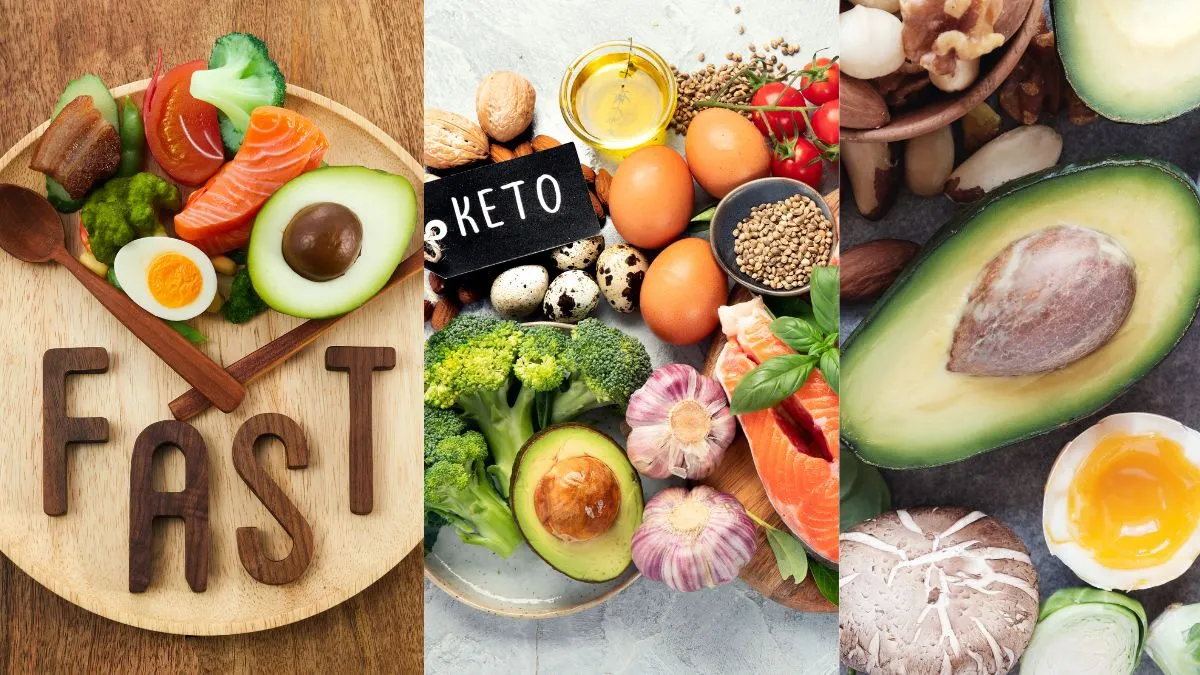- By Iram Hussain
- Fri, 19 Sep 2025 05:50 PM (IST)
- Source:JND
In today’s time, obesity is the biggest health concern all over and recent studies have reported that globally, more than 1.9 billion adults are overweight and 650 million are obese. Due to the consumption of energy-dense food (i.e. unhealthy food habits), sedentary lifestyle, the developing countries are facing a high risk of obesity and its adverse consequences (i.e. diabetes, ischemic heart disease, etc). In India, more than 135 million individuals were affected by obesity. In India, abdominal obesity is one of the major risk factors for cardiovascular disease.
Hence, quick-fix weight loss solutions and designer diets have gained a lot of popularity. From keto to intermittent fasting to raw food plans - these diets promise rapid results, but are these diets safe if followed without supervision is questionable. In a conversation with The Daily Jagran, Ms. Deepti Khatuja, Head Nutritionist, Fortis Memorial Research Institute, Gurgaon explained which diets are safe and which can pose health risks.
Keto Diet
The ketogenic diet emphasises high-fat intake, moderate protein and very low carbohydrates. Forcing the body into a state of ketosis, it encourages burning fat for fuel instead of glucose.
Keto diets play a vital role in certain diseases.
- It has a beneficial effect on a variety of metabolic, oncologic, neurodegenerative and psychiatric disorders with different mechanisms of action.
- It also has an anti-angiogenic effect
- Direct and Indirect effects (neurotransmission, ATP production)
- Improvement in the control of difficult-to-control seizures
- Weight reduction
Other benefits include -
- Improvements in alertness
- Sleep behaviour
- Comprehension
- Motor and communication skills
Side effects or risks of the keto diet are:
- Increase in cholesterol (total and LDL) and triglycerides,
- Decrease in HDL-cholesterol
- Decrease in blood levels of L-carnitine,
- Abnormal electrocardiograms (rare)
- Kidney stones occur in 5-8%.
Intermittent Fasting
Intermittent fasting is a form of time-restricted eating (typically 16 h fasting and 8 h eating), which has gained popularity in recent years and shows promise as a possible new paradigm in the approach to weight loss and the reduction of inflammation and has many potential long-term health benefits.
The benefits of intermittent fasting include:
- Promotes weight loss due to restrictive hours of eating.
- May improve blood sugar, cholesterol, or triglyceride levels.
- No restriction on food group, hence easy to follow for vegetarians or vegans.
- Flexible to adjust time as per individual needs.
- It can have anti-inflammatory effects, promote autophagy and benefit the gut microbiome.
The side effects or cons of intermittent fasting are:
- Fasting could be dangerous if you are on certain medications or have certain medical conditions like uncontrolled diabetes, etc.
- Mood swings during the fasting period.
- Hunger pangs can lead to overeating during a non-fasting period.
- Wrong and unhealthy selection of foods during the non-fasting period can result in micronutrient deficiencies.
Raw Food Diet
The raw food diet is built on the principle that heating food destroys its enzymes and reduces the nutritional value of the food.
The benefits include:
- Rich sources of fibre, antioxidants and phytochemicals.
- Low in processed foods, sugars and unhealthy fats.
- It can support weight loss and improved digestion.
Risks of a raw food diet include:
- Higher risk of food-borne illnesses
- Not suitable for certain gastric medical illnesses.
- Not suitable for all ages ( geriatric)
Instead of these designer diet trends, a balanced, sustainable diet with plenty of fruits, vegetables, whole grains, lean proteins and healthy fats remains the key to healthy living. If one wishes to do these diets, it’s best done under the proper supervision/guidance of a qualified nutritional professional.
